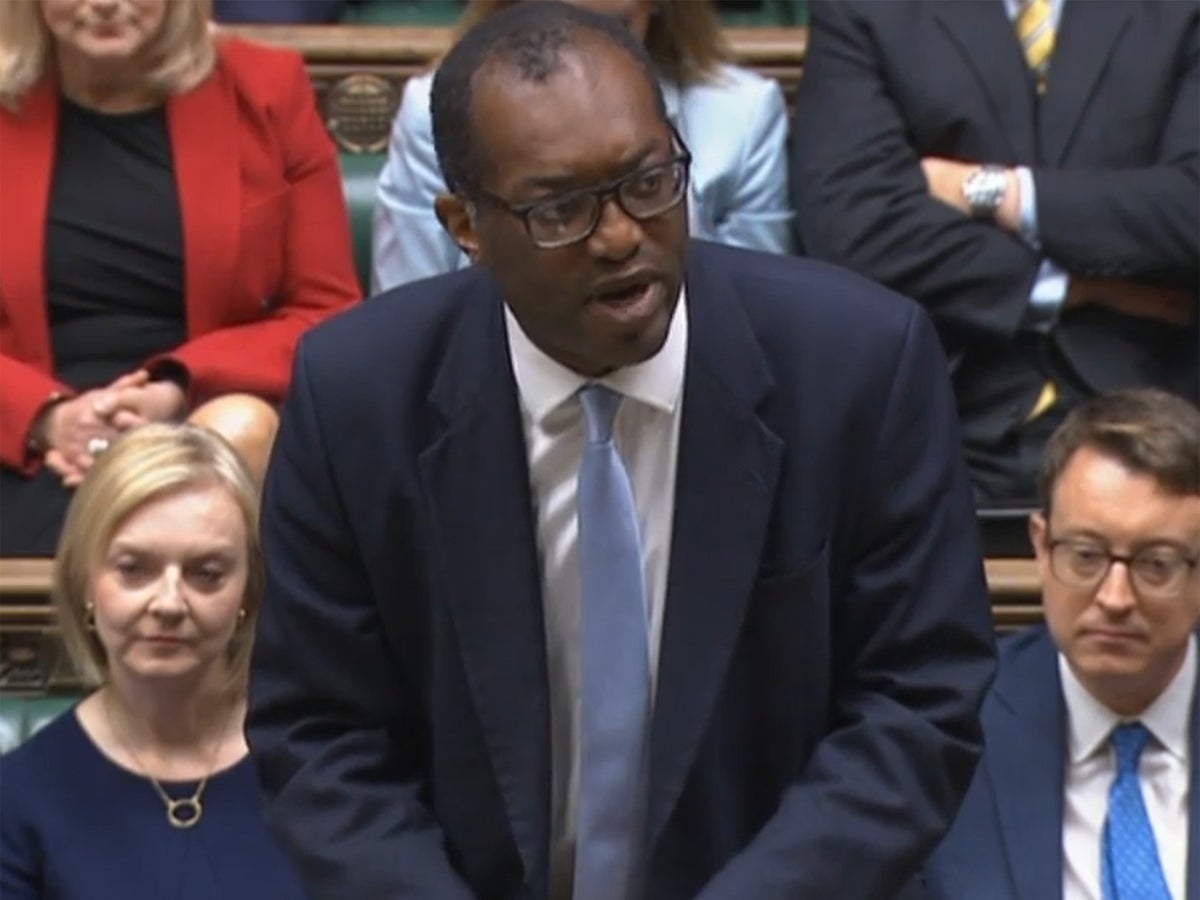
The government support package to cap energy bills from October will cost £60bn in the first six months alone, said chancellor Kwasi Kwarteng.
“The total cost of the energy package for the six months from October is expected to be around £60bn,” the chancellor announced as part of his mini-budget.
The plan to cap annual household energy billls at £2,500 will cost £31bn in the six-month period, and the plan to slash businesses’ bills in half will cost around £29bn.
Mr Kwarteng also outlined a new £40bn financing scheme for energy firms, which will see the Bank of England “provide a 100 per cent guarantee for commercial banks to offer emergency liquidity to energy firms”.
Mr Kwarteng confirmed that the national insurance hike introduced by Boris Johnson’s government to pay for social care and tackling the NHS backlog will be reversed as part of his “growth plan”.
He also confirmed that the planned increase in corporation tax from 19 per cent to 25 per cent, as well as axing the cap on bankers’ bonuses as part of push to deregulate the City.
He pledged to turn “the vicious cycle of stagnation into a virtuous cycle of growth” as he sets out the Liz Truss government’s radical tax-cutting approach to the economy.
Mr Kwarteng told Commons: “Growth is not as high as it needs to be, which has made it harder to pay for public services, requiring taxes to rise.”
“This cycle of stagnation has led to the tax burden being forecast to reach the highest levels since the late 1940s,” he added. “We are determined to break that cycle. We need a new approach for a new era focused on growth.”
However, the government revealed a huge increase of £78bn in additional borrowing for the rest financial year, mostly to pay for the loss in tax revenue.
He said the government is also in talks with dozens local authorities in the West Midlands, Tees Valley, Somerset and other regions to establish new, low-tax investment zones – areas with lower planning and environmental regulations.
“The time it takes to get consent for nationally significant projects is getting slower, not quicker, while our international competitors forge ahead. We have to end this,” Mr Kwarteng is expected to say.
He also wants new measures to speed up around 100 major infrastructure projects, including new roads, railways and energy projects, by watering down environmental assessments and other regulations.
Despite criticism that a huge expansion in borrowing could fuel inflation, Mr Kwarteng said it was “entirely appropriate for the government to use our borrowing powers to fund temporary measures to support families and businesses”.







